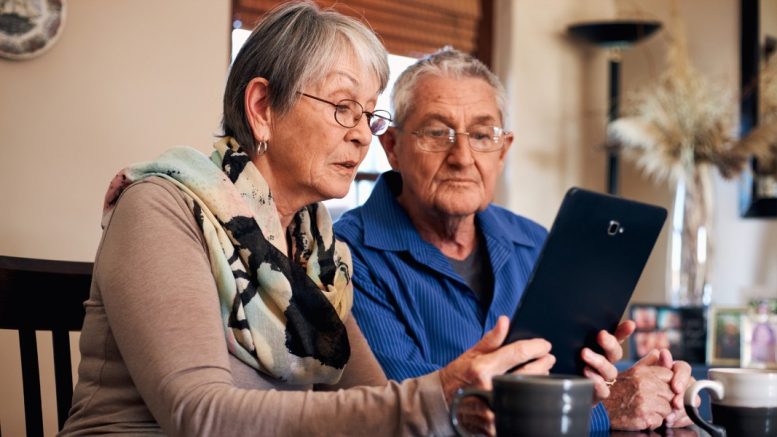Neurologists are testing a remote monitoring program to support patients with mild cognitive impairment
Nuvance Health is one of the first health systems in the United States to pilot a new remote monitoring technology for patients with mild cognitive impairment (MCI). Neuroglee Connect™ is a virtual neurological specialty care program for clinical care teams to provide ongoing, personalized support for patients with MCI and caregivers from the comfort of their homes.
MCI is an early stage of memory loss or other cognition problems, such as difficulty with language and thinking. According to the Alzheimer’s Association, 12% to 18% of people age 60 and older have MCI in the United States. While MCI is not a type of dementia, the Alzheimer’s Association estimates 10% to 15% of people with MCI eventually develop dementia every year.
There are currently no approved medications to treat MCI. Current guidelines state that regularly stimulating the brain and adopting healthy lifestyle habits can be supportive to patients with MCI.
The remote monitoring program Nuvance Health has made available through its Neuroscience Institute includes brain-stimulating activities that can measure performance through timely assessments and identify signs of deterioration. A digital dashboard captures this information in real-time for neurologists who can provide ongoing therapy modifications based on real-world data while efficiently tracking each patient’s adherence to the program.
“We care deeply about our patients with MCI and their caregivers, and understand how the diagnosis can be extremely worrisome,” said Paul Wright, MD, senior vice president and system chair of the Neuroscience Institute at Nuvance Health. “We are passionate about bringing them the latest care options and support, and in particular, leveraging digital innovations that they can access from the comfort and convenience of home.”
“Nuvance Health’s neurologists will use a digital platform to remotely monitor patients and keep them mentally active with consistent and intense brain activities,” said Dr. Wright. “Patients will use an iPad to participate in medically-tested activities to stimulate their brains.”
The digital platform offers brain-stimulating activities such as playing games and learning new skills. It also offers memory compensation training, and reminiscing by uploading and viewing personal photographs and videos to trigger memories. In addition, the platform includes content about healthy lifestyle habits, such as eating well, exercising and getting enough sleep.
The remote monitoring program has a digital platform and resources for caregivers because they play a critical role in the management of neurodegenerative conditions. Care partners can monitor a patient’s progress through the platform and access education, support, and informational tools for identifying and overcoming MCI-related anxiety and stress.
“The caregiver is also involved as they are a major contributing factor to a patient’s well-being,” said Dr. Wright. “Our neurologists will support their efforts at home because we now have an objective way to continuously track each patient’s condition over time. We can then use the information to inform appropriate, individualized care.”
A majority of Nuvance Health patients with MCI have adopted the remote monitoring program during the initial pilot phase. The new technology is currently available at Nuvance Health Neuroscience Institute neurology practices in New York and Connecticut.

